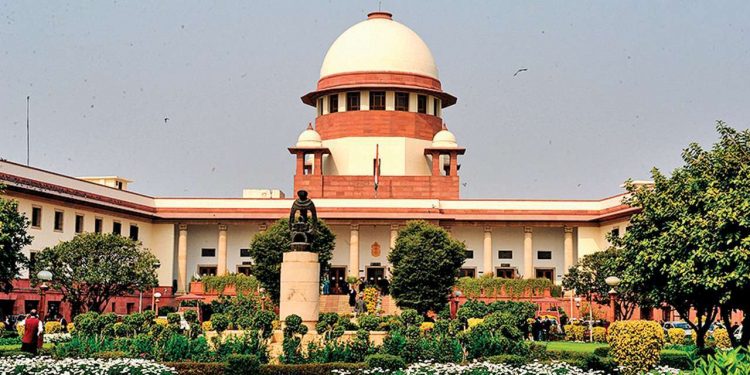New Delhi: The Supreme Court has expressed dissatisfaction on a trial court in Dehradun for granting 78 adjournments in a 2014 case of cheating and forgery against three persons and directed it to complete the trial within six months.
A bench of Justices A.M. Khanwilkar, Dinesh Maheshwari, and C. T. Ravikumar said: “We have noticed that the trial court, despite having taken cognizance almost seven years back, has not moved in the matter even an inch thereafter, including to frame charges, as may be necessary, despite 78 adjournments in the case.”
The bench directed the trial court to ensure that the trial is concluded not later than six months from the date of receipt of copy of this order. Ensuring that trial court to proceed in the matter without any further day, the top court said: “We direct the Investigating Officer to ensure that the witnesses are made available on the scheduled dates for being examined by the trial court.”
The bench also released the accused — Manish Verma, Sanjeev Verma, and Neetu Verma — on bail on terms and conditions which were imposed by the trial court, while directing them to extend full cooperation in the case for early disposal of the trial.
“The trial court is of the opinion that the private respondents are not cooperating in the progress of the trial or are taking unnecessary adjournments, it must record that opinion in the roznamcha (diary) and if that is a persistent approach of the private respondents, it will be open to the trial court to consider cancellation of bail in accordance with law,” said the top court in its order.
The top court order, dated September 15, came on an appeal filed by Dr Atul Krishna challenging the Uttarakhand High Court order dismissing his plea seeking early disposal of the case. According to the appeal, an FIR was registered in 2012 by the petitioner in Meerut district against the respondents at Meerut in connection with a land deal. The matter was transferred to Dehradun, as the major properties and documents were falling in its domain.
The appeal submitted that the respondents had deliberately abuse the process of law by taking adjournments on one ground or the other. The respondents submitted that they had never been served.
IANS






































